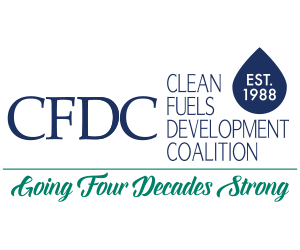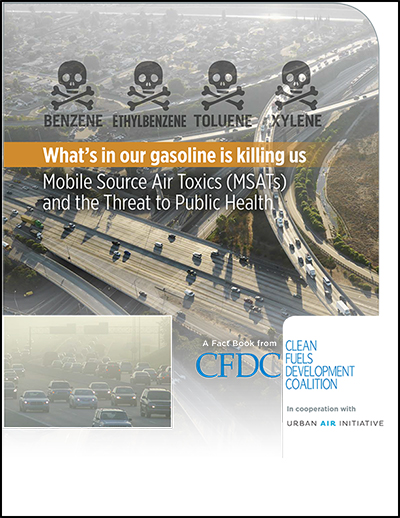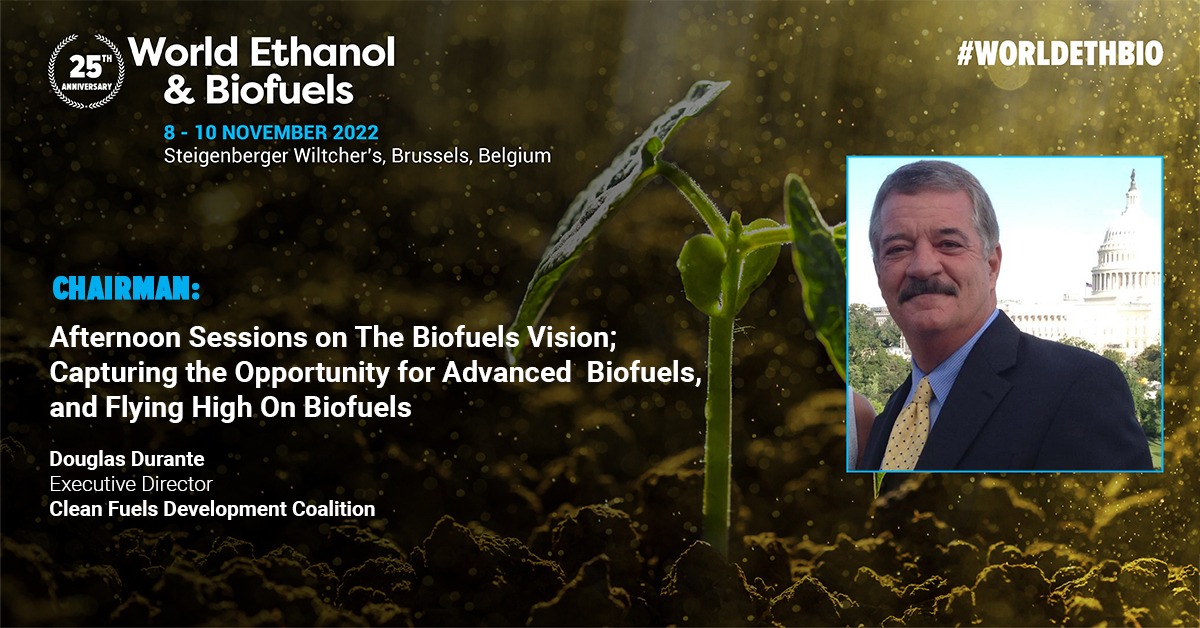MSAT Fact Book
The Mobile Source Air Toxics Fact Book was supported by more than two dozen groups from the ethanol industry and makes a compelling case for replacing carcinogenic octane additives with clean octane ethanol. Find it and related information through CFDC’s Safe Gasoline Campaign.
Experience: The Difference
For 30 years the Clean Fuel Development Coalition (CFDC) has been working with hundreds of diverse private and public organizations to build common ground and effective coalitions that can change status quo to save lives and create jobs. CFDC members and supporters include fuel and chemical producers, automakers, technology developers, agricultural producers, and NGOs interested in economic, energy, environmental, and national security.
CFDC is 501(c) (6) non-profit organization that actively supports the increased production and use of fuels that can reduce air pollution and oil imports. Through six administrations and sixteen Congressional delegations, CFDC has been building bi-partisan support in government to work with industry to foster healthy national economic, energy, environmental, and national security-related policies. Federal legislative and regulatory experience includes support for biofuel programs and incentives, working with Congress on the Energy Policy Act, Clean Air Act Amendments, the Reformulated Gasoline program, the Renewable Fuels Standard, and defending agency budgets for programs that help meet clean fuel and clean air regulations. At the state level, CFDC has helped develop clean fuel programs and industry initiatives that helped build the modern ethanol industry. CFDC works with all interested parties to support clean fuel related legislation and regulations that will drive new technologies that will help our country meet the ever-changing and complex demands of our society.
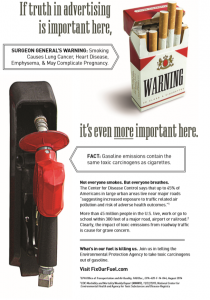
CFDC News & Events
Fuel Economy Rule Needs High Octane
August 30, 2021: A wide range of stakeholders responded strongly to a proposed rule-making to tighten vehicle emissions by applauding the action but warning of near term health risks that must be addressed in the final rule.
Several organizations and individuals from the ethanol, auto, and climate sectors joined CFDC to tell the U.S. Environmental Protection Agency (EPA) that the failure to adopt a strategy and pathway to higher octane low carbon fuels will result in the 270 million cars on the road today continuing to emit not just greenhouse gases but also highly toxic particulates.
Click below for more information and links to comments.
CFDC Asks EPA–What Happened?
In testimony today to the U.S. Environmental Protection Agency on the new fuel economy rules, the Clean Fuels Development Coalition (CFDC) challenged the agency’s omission of any mention of clean octane even though they had previously acknowledged the relevance to fuel economy and reduced emissions.
“We think it’s a fair question for us to ask–what happened?” said CFDC Executive Director Doug Durante. Not only did EPA previously solicit comments on how high octane fuels could help meet the objectives of the fuel economy rule but they also were provided more updated data, particularly with respect to health impacts. Higher octane if instituted in concert with a control on toxic compounds currently used to increase octane would reduce a range of harmful emissions, which EPA had stated was a priority in the rule.
Agriculture and Ethanol Groups Echo Automakers Call for Higher-Octane Gasoline Standard in Fuel Economy Rule
CFDC joined with more than two dozen agriculture and ethanol groups urging President Biden to direct EPA to increase the minimum octane standard in gasoline. Raising octane with ethanol displaces toxic compounds refiners use and would allow automakers to increase mileage while reducing greenhouse gas emissions.
Reduce Toxics in Gasoline!
CFDC Co-sponsored a forum at the United Nations Foundation recently that featured expert speakers and presentations covering a wide range of health and environmental issues. The National Farmers Union and the Environment and Energy Study Institute (EESI) also sponsored this day long forum. Health and environmental leaders are coming together calling for EPA to reduce toxic compounds in gasoline.
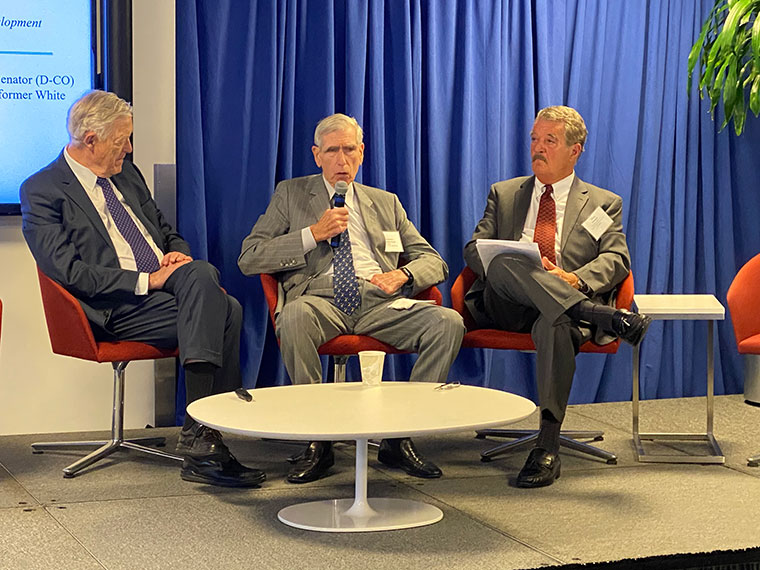
CFDC’s Doug Durante leads a discussion with UN Foundation Chairman and former Colorado Senator Tim Wirth, and C. Boyden Gray, former U.S. Ambassador to the European Union and White House Counsel to President George W. Bush.
Legislation & Regulation
- The primary driver for the advancement of cleaner fuels has been legislation at both the federal and state levels. While the ethanol industry has matured and requires no subsidies, without legislation encouraging and even requiring the use of clean-burning fuels the markets would not have been developed and investment would not have occurred.
- CFDC is an industry thought leader when it comes to shaping legislation that will propel clean fuels to the next level. From meetings with federal lawmakers on Capitol Hill to governors and state legislators across the country, CFDC helps guide public policy to ensure that the decisions are what is best for our country in the long-term. It’s public interest vs. special interest.
- Part of CFDC’s impact on the legislative process is achieved through providing factual and trusted information to the House, Senate, and Executive Branch.
- After Congress passes legislation, it is up to the different regulatory agencies to decide how the laws will be implemented. CFDC takes a very active role in helping the U.S. Environmental Protection Agency, the U.S. Departments of Energy and Agriculture implement the national renewable fuel standard, monitor the federal reformulated gasoline program, enforce the Clean Air Act Amendments, and meet the energy and environmental intents of Congress.
- There are several regulatory issues that are currently being decided with regard to fuel testing, emission modeling, CAFE standards, automotive technology, and octane standards for gasoline, mobile source air toxic emissions, and public health fuel-related research. Without the efforts of the CFDC and similar like-minded groups, there are no guarantees that fuels will continue to be cleaner and domestic energy producers will continue to grow and prosper.
Education
- One of the Coalition’s primary objectives is education. Without an appreciation for the benefits and value of clean fuels to our society, there will not be sufficient support at the Congressional and executive levels to change status quo and implement the new programs necessary to achieve those benefits. CFDC works with its members and other like-minded organization to compile and synthesize information that will stimulate the dialogue between industry, government, NGOs, the public, and the media to open the market and break down barriers to clean fuels. CFDC publishes Fact Books, White Papers, Issues Briefs, and provides Congressional testimony.
- Through CFDC’s foundation, several educational campaigns have been developed such as the FlexFuel & FlexFuel Vehicle Awareness Campaign supporting alternative fuels and vehicles. The Ethanol Across America campaign produced radio shows, focused on regional education campaigns, and articles for the trade press and mainstream media. Considered a thought leader in the area of clean fuels, CFDC is often called upon to provide a broader perspective as it is not a typical single issue trade association.
Outreach
- CFDC and its members have delivered hundreds of speeches to numerous organizations about the benefits of domestic, renewable, and environmentally friendly transportation fuels. CFDC has worked with the U.S. Council of Mayors, the National Conference of State Legislators, National Governors Coalition, Governors’ Biofuels Coalition, and the United Nations Council on Sustainable Development — to name a few. As part of its education and outreach program, CFDC has sponsored, co-sponsored, presented or participated in hundreds of national and international conferences, and special events. Examples include:
- Creating the concept and managing six Environmental Inaugural Balls
- Supporting 100+ international conferences on fuel quality
- Delivering Congressional testimony
- Testifying before the United Nations
- Supporting the Sustainable Energy Caucus and Congressional Renewable Energy Expo
- Participating in the Nation’s 4th of July parade, and countless state and community events that support the development of clean fuels.
- The more information that is available to the public, government officials and lawmakers, the more likely they are to support growth in cleaner-burning fuels. (See CFDC News & Current Events and Publications).
